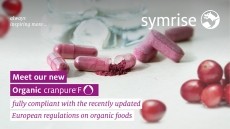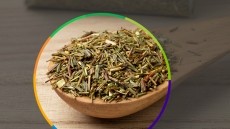Cranberry extracts show promise against gullet cancer
Barrett's oesophagus, a precursor to oesophageal cancer, suggests a
new study form California.
A proanthocyanidins-rich cranberry extract was found to inhibit the growth and spread of human oesophageal adenocarcinoma (a cancer in glandular tissue) cells, report the researchers from Ohio State University and the Blueberry and Cranberry Research Center at Rutgers University. "Anticancer activity has been reported for whole cranberry extracts as well as specific cranberry fractions in numerous in vitro studies utilizing cancer cell lines and in limited in vivo investigations," wrote lead author Laura Kresty in the Journal of Agricultural and Food Chemistry. "However, to our knowledge the cancer inhibitory potential of cranberries or cranberry constituents has not been evaluated against esophageal cancer utilizing in vivo models or in vitro systems." The researchers employed two types of oesophageal adenocarcinoma cell lines - SEG-1 (responsive to acid) and BIC-1 (non-acid-responsive line) to test the cranberry extracts. The SEG-1 line was used to "gain insight into the mechanisms by which reflux of acid and bile salts promotes progression to Barrett's esophagus and ultimately esophageal adenocarcinoma," explained Kresty. Barrett's oesophagus is cause by acid reflux, and although it can occur early in life, most sufferers are in their 40s and 50s. Although it has been reported to be a precursor to oesophageal cancer, 90 per cent of patients are said to never develop cancer, and although some speculation as to dietary and drug history, the reason why this is so is not really known. The researchers incubated the cells with varying concentrations of the proanthocyanidins-rich cranberry extract, ranging from 12.5 to 400 micrograms per millilitre. They report a time- and dose-dependent effect on the viability and spread of the cells. In addition, at a concentration of 50 micrograms per millilitre, the acid-induced cell proliferation of SEG-1 cells was significantly reduced by the cranberry extract. The researchers report that apoptosis (programmed cell death) was 43.6 per cent greater in the cranberry extract-treated cells. "In summary, our results show that a cranberry proanthocyanidin rich extract has potent effects on cell cycle regulation, cell viability, cell proliferation, and apoptosis of esophageal adenocarcinoma cells," wrote the researchers. "The specific molecules mediating the pro-apoptotic, antiproliferative, and positive cell cycle regulatory effects of PAC are currently under investigation," they concluded. The popularity of cranberries has been increasing in recent years as a combination of strong marketing campaigns and a body of scientific evidence revealing the fruit's health benefits have contributed to growing consumer awareness and interest in the product. The fruit has long been considered an effective method of fighting urinary tract infections, something that has led to almost one third of parents in the US giving it to their children, according to a recent study. In 2004 France became the first country to approve a health claim for the North American cranberry species Vaccinium macrocarpon, which states that it can 'help reduce the adhesion of certain E.coli bacteria to the urinary tract walls'. Recently, researchers from St. Francis College, Mt. Sinai School of Medicine, and New York University reported that the anti-bacterial benefits may be matched by anti-viral benefits (Phytomedicine, Vol. 14, pp. 23-30). Source: Journal of Agricultural and Food Chemistry Published online ahead of print, ASAP Article, doi: 10.1021/jf071997t "Cranberry Proanthocyanidins Induce Apoptosis and Inhibit Acid-Induced Proliferation of Human Esophageal Adenocarcinoma Cells" Authors: L.A. Kresty, A.B. Howell, M. Baird










